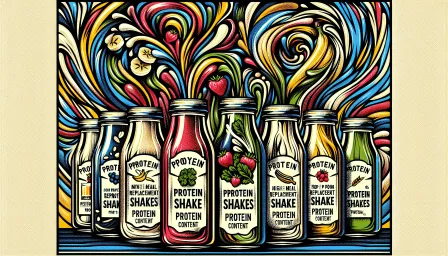Metabolic Rate and Metabolism: Understanding the Key Differences

Discover the differences between metabolic rate and metabolism, their roles in the body, and how they affect overall health.
Your body is a complex machine driven by numerous biochemical processes, and two terms that often come up in discussions about health and fitness are "metabolic rate" and "metabolism." Though they are closely related, they are not synonymous. In this article, we will explore these concepts in depth, clarify their distinctions, and discuss their significance to your overall well-being.
What is Metabolism?
Metabolism refers to all the chemical reactions that occur within an organism to maintain life. These processes can be divided into two categories:
- Anabolism: The synthesis of complex molecules from simpler ones, such as the creation of proteins from amino acids. Anabolic reactions require energy.
- Catabolism: The breakdown of complex molecules into simpler ones, releasing energy that can be used by the body. An example of catabolic reaction is the digestion of food into nutrients.
These reactions are crucial for various bodily functions, including energy production, growth, and cellular repair.
Understanding Metabolic Rate
Metabolic rate is the rate at which your body expends energy or burns calories. It is a measure of how efficiently your body uses energy and can be influenced by several factors:
Basal Metabolic Rate (BMR)
Basal Metabolic Rate (BMR) is the number of calories your body needs to maintain basic physiological functions while at rest. This includes breathing, maintaining body temperature, and keeping your heart beating. BMR can be affected by:
- Age: BMR typically decreases with age.
- Gender: Men generally have a higher BMR than women due to greater muscle mass.
- Hormonal balance: Thyroid hormones significantly influence BMR.
- Genetics: Some people are genetically predisposed to have a higher or lower BMR.
Active Metabolic Rate (AMR)
Active Metabolic Rate (AMR) takes into account additional calories burned through physical activity. The more active you are, the higher your AMR will be. This includes everyday movements, exercise, and other voluntary physical activities.
Factors Affecting Metabolism and Metabolic Rate
Age and Growth
Metabolism tends to slow with age, partly because of the loss of muscle mass and hormonal changes. Conversely, during periods of growth such as puberty, metabolic rate can increase.
Muscle Mass
Muscle tissue burns more calories than fat tissue, even at rest. Therefore, individuals with more muscle mass generally have a higher metabolic rate.
Physical Activity
Regular physical activity, especially strength training, can help increase metabolic rate by building muscle mass and enhancing the efficiency of energy use.
Diet and Nutrition
What you eat can impact your metabolism. Protein, for instance, requires more energy to digest than fats and carbohydrates, thereby temporarily boosting metabolism. Additionally, certain nutrients are essential for efficient metabolic function.
Hydration
Water is necessary for numerous metabolic reactions. Dehydration can slow down metabolism.
Genetics
Your genetic makeup can influence your metabolic efficiency and BMR.
Boosting Your Metabolism: Practical Tips
Now that we've covered what metabolism and metabolic rate are, you might be wondering how to enhance these processes to improve overall health and fitness. Here are some science-backed tips:
Exercise Regularly
Strength training can help build muscle mass, which in turn boosts your metabolic rate. Aerobic exercises improve cardiovascular health and can increase the amount of calories burned.
Eat Enough Protein
Include protein in every meal to enhance satiety and increase the thermic effect of food (TEF), the energy required to digest, absorb, and process nutrients.
Stay Hydrated
Proper hydration is essential for metabolic processes. Drinking water can also temporarily boost metabolism.
Get Adequate Sleep
Lack of sleep can negatively affect metabolic rate and hormone balance, leading to weight gain and other health issues.
Avoid Crash Diets
Extreme calorie restriction can slow down your metabolism as your body tries to conserve energy.
Conclusion
Although the terms "metabolic rate" and "metabolism" are often used interchangeably, they refer to distinct but related concepts. Understanding these differences can help you make informed decisions about your health and wellness. By focusing on factors like regular exercise, proper nutrition, and adequate sleep, you can positively influence both your metabolism and metabolic rate, leading to better overall health.



























